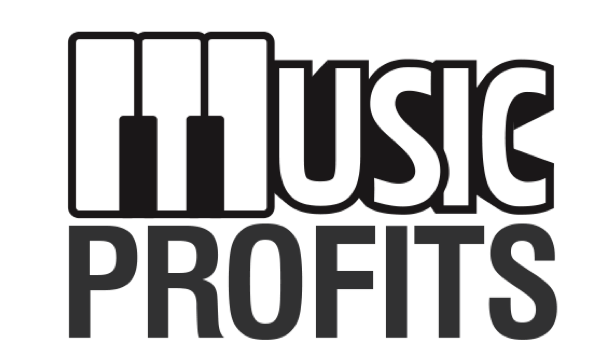You love playing the guitar and want to share your love for the instrument with others, but you might wonder about how to teach guitar in a way that’s going to be both fun AND profitable. After all, while it’s important to share your talent and skills with others who wish to learn, teaching takes time and energy and you need to make sure you’re properly compensated for those hours.
Do an internet search of “how to become a guitar teacher” and you’ll likely find all sorts of advice, from which teaching methods to use to how much money to charge for lessons. The fact is, however, that your success in teaching guitar and exactly how you’ll run your business will depend on many different factors, such as those we’ve outlined below.
Your location
The particulars of teaching guitar lessons will often be governed by where you’re located. This happens for a number of reasons.
First, if you’re in an area of high demand with few teachers, you’ve got the ideal location! In such a location, you will certainly be able to pick-and-choose your student clientele as you will likely have many requests for lessons. You might even choose to become a “specialist”, becoming well-known for teaching a certain demographic, such as children or perhaps adult beginners. You can also charge a higher price if you are teaching guitar in an area where you are in demand.
In contrast, if you want to be a guitar teacher in an area where there are already many teachers, you may have a more difficult time finding students and your prices may need to be a bit lower. You’ll have to be a clever advertiser!
Hence, in order to determine the particulars of your location before you start, you’ll need to do some extra research into how to become a guitar teacher in your area as it relates to the availability of both students and teachers in your region. Then, you need to advertise and price your lessons accordingly.
Your guitar experience
You may wonder how much your experience as a guitar teacher will dictate your success. After all, you might be a skilled guitarist with years of experience playing the instrument, but do you know how to be a guitar teacher?
Not all great musicians are great teachers, nor do they always want to be, but if your will to be a teacher is motivating you to move in that direction, it won’t matter that you’ve never taught before. Instead, you can certainly take advantage of the expertise of others who can help you get all your proverbial ducks in a row and make you look like a pro.
With the right guidance, you can be teaching as if you have years of experience, even if you’re just starting out in the business. The Music Profits Program will virtually “hold your hand” as you learn the ins and outs of running a successful business and will instruct you on how to teach guitar as if you’ve been doing it for decades!
Successfully advertising guitar lessons
Of course, even if you know how to teach guitar lessons, you may not know where or how to find those all-important students. How do you get the word out about your intent to take on some students and which methods of advertising are most successful?
Though we all tire of all the antics on social media sites like Facebook and Twitter, there’s plenty of research that shows that such sites are often the best for advertising one’s services, including advertising for music students. Not only can you share your great news about opening your own guitar teaching studio with your friends and ask them to share or re-tweet, but you can also purchase a low-cost ad that targets your desired audience. That audience can include individuals in your area that have shown an interest in music in general or in guitar specifically.
Though we may think it’s a little eerie that sites like Facebook seem to know what interests us, that insight comes in handy for applications such as this.
Of course, good old-fashioned word-of-mouth advertising works as well, so you need to be diligent about spreading the word among friends and family members who may know someone interested in signing up for lessons. Don’t be shy about tooting your horn a bit and let others know about your intentions and how excited you are to get started.
And don’t ever stop promoting yourself, even after you’ve gotten your studio off to a good start.
Being organized as a guitar teacher
As you consider how to teach guitar successfully, remember that being organized – and staying that way – is essential to a successful business. After all, this will indeed be a BUSINESS and not just a hobby, even if you’re only teaching part-time.
You can use a well-tested system like the one available from Music Profits to organize your schedule, though you’ll want to first carefully consider that schedule. Choose the hours during which you’d like to teach and adhere to those hours. Consistency benefits all involved.
Also develop a cancellation policy and strictly follow that as well. Cancellations – especially those that occur last minute – affect your bottom line and certainly don’t benefit the student either. Be sure your policy is clear BEFORE you agree to begin teaching guitar to a particular student and consider having them sign the policy, noting that they’ve read it and understand it. It’s an important piece of the puzzle!
Finally, be sure you have a program in place (likely an online program) that will help you keep your earnings straight. That involves factors such as considering whether or not you wish to become a corporation or other business entity, opening a separate checking account for your business, keeping track of items and earnings that pertain to taxes, and more. Good bookkeeping is essential and involves lots more than entering a deposit in your checkbook ledger!
Indeed, if you’ve always wanted to know how to be a guitar teacher, these tips will get you off on the right track. However, to further your business and keep it running smoothly, check out the Music Profits program. It’ll get you moving in a positive direction from day one and will help you to continue to run your business successfully so that – before you know it – you can become an expert in how to teach guitar.

